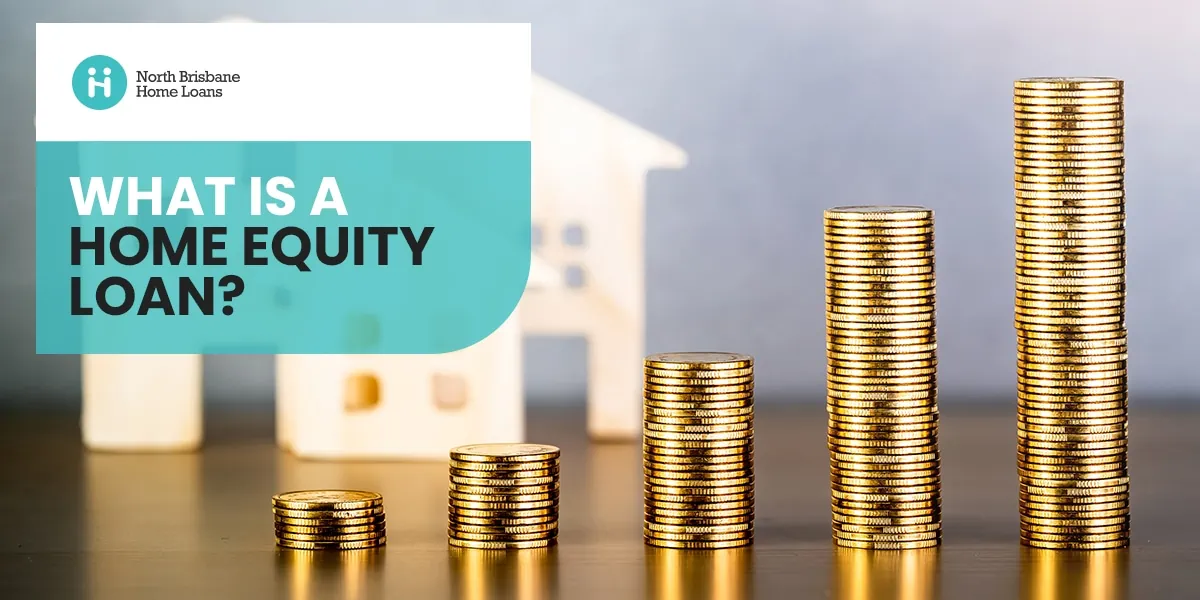Unlocking the Hidden Potential of Your Home: What is a Home Equity Loan?
If you’re a homeowner and you find yourself in dire straits due to a change in financial situation or some other event in your life, take heart. You may be able to tap into your home equity via a home equity loan when you need cash. What is a home equity loan and when can you access this? What circumstances allow you to access your home equity in a loan?
With the consistent rise in interest rates from May of 2022, homeowners have increasingly turned to home equity loans as a means to meet financial obligations and achieve financial goals. This surge in interest in these loans is not without reason. Since these can provide you with a unique opportunity to leverage the value of your home to secure funds for various purposes, it’s natural to think of it as an option when the going gets tough.
In this comprehensive guide, we will explore what home equity loans are and how they work. We will also tackle the different types of interest rates associated with them and the benefits as well as risks homeowners should consider when contemplating this financial option. The goal is to equip you with the knowledge you need to make informed decisions about this loan and whether they align with your financial objectives.
What is Home Equity?
Before probing the intricacies of home equity loans, it’s essential to understand the concept of home equity itself. You may be asking yourself, how much equity do I have in my home? You can calculate this with a formula. You see, home equity is the difference between the current market value of your home and the outstanding balance on your mortgage. So, if you’re calculating home equity, here’s an equation that explains home equity:
Current home value – remaining mortgage and owed amounts = home equity
Let’s say your home is valued at $400,000, and you still owe around $150,000 on it, the home equity you have is $250,000.
In simpler terms, it represents the portion of your home that you truly own outright. As you continue to make mortgage payments, you build equity over time, and this growing equity becomes a valuable asset.
In recent years, homeowners have grown increasingly aware of the significance of their home equity. This awareness is driven by the desire to utilise this asset to fulfil various financial needs, such as home renovations, debt consolidation, or funding educational expenses.
Definition of Home Equity Loan
A home equity loan, sometimes referred to as a “second mortgage,” is a type of loan that enables homeowners to borrow against the equity they’ve built up in their homes. It lets you convert a portion of your home’s value into cash, which you can use for various purposes. These are typically structured as fixed-rate loans with a predetermined term.
How Home Equity Loans Work
To comprehend how home equity loans work, let’s break down the process:
Loan Amount – Homeowners can typically borrow up to a certain percentage of their home’s appraised value, minus any outstanding mortgage balance. This percentage can vary but is often around 80% of the home’s value. So, if your home is appraised at $400,000, and you owe $150,000 on your mortgage, you may qualify for a home equity loan of up to $170,000 (80% of $400,000 – $150,000).
Secured Loan – It’s essential to understand that an equity loan is a secured loan, meaning it’s backed by collateral, which in this case is your home. This means that if you fail to make the required payments, your lender has the legal right to foreclose on your property to recover the loan amount.
Different from Other Loans – This loan is different from other types of loans, such as personal loans or credit card debt. Unlike credit card debt, which is unsecured, home equity loans offer lower interest rates because they are secured by your home. This makes them an attractive option for homeowners looking to borrow larger sums of money at a more affordable cost.
Types of Home Equity Loan Rates
When considering a home equity loan, you will encounter different interest rate options. Here are two primary types:
Interest-Only Loan – With an interest-only home equity loan, borrowers are only required to pay the interest portion of the loan on a monthly basis. The principal amount remains unchanged during the interest-only period, typically spanning the first five to ten years of the loan term. After this initial period, borrowers must begin repaying both the principal and interest, often leading to higher monthly payments.
Principal and Interest Loan – In contrast, a principal and interest home equity loan requires borrowers to make monthly payments that cover both the interest and a portion of the principal. Over time, this leads to a gradual reduction in the outstanding loan balance, ultimately resulting in full repayment by the end of the loan term. These loans often have slightly higher initial monthly payments compared to interest-only loans but can be more financially rewarding in the long run as the loan balance decreases over time.
Benefits of Home Equity Loans
Home equity loans offer a range of advantages that make them a compelling financial option for homeowners:
Financial Flexibility – One of the primary benefits of a home equity loan is the flexibility it provides. Borrowers can use the funds for various purposes, including home improvements, debt consolidation, education expenses, or even starting a new business. This versatility makes them an attractive choice for individuals with diverse financial goals.
Lower Interest Rates – A home equity loan typically offers lower interest rates compared to credit cards, personal loans, or other unsecured forms of borrowing. The lower interest rate can result in substantial savings over the life of the loan, making it a cost-effective solution for accessing funds.
Potential for Refinancing – Homeowners who have built up a significant amount of equity may have the opportunity to refinance their existing mortgage and home equity loan into a single, lower-interest loan. This can lead to substantial savings over time, as it reduces the overall interest paid on the combined debt.
Risks Associated with a Home Equity Loan
While home equity loans offer numerous benefits, it’s essential to be aware of the associated risks:
Losing your home – Since these loans are secured by your home, failing to make the required payments could lead to the lender selling your home to recoup costs. This can result in you losing your home.
Reduced Home Equity – Taking out this loan means borrowing against the equity you’ve built up in your home. This can result in reduced overall home equity, which may limit your options in the future, such as refinancing or selling your home at a profit.
Variable Interest Rates – Some home equity loans come with variable interest rates, which means your monthly payments can fluctuate based on changes in the market interest rates. These fluctuations can make budgeting more challenging and potentially lead to higher payments over time.
Accumulation of Debt – Note that this loan, especially the interest-only option, can lead to the accumulation of debt without making substantial progress in paying down the principal amount. This can leave borrowers with a significant debt burden at the end of the loan term.
Costs to Consider in a Home Equity Loan
When evaluating the feasibility of this type of loan, it’s crucial to consider the associated costs. Here are some of them:
Application Fees – Lenders may charge fees to process your home equity loan application. These fees can vary from lender to lender, so it’s essential to enquire about them upfront.
Valuation Fees – Lenders often require a professional valuation to determine the current market value of your home. Valuation fees can vary based on your location and the size and complexity of your property.
Prepayment Penalties – Some home equity loans may include prepayment penalties if you decide to pay off the loan early. It’s essential to understand the terms of your loan agreement and whether prepayment penalties apply.
Navigate Home Equity Loans Easily with NBHL
Home equity loans offer a valuable tool for homeowners seeking to access the wealth they’ve built in their homes, but this can be a complicated and tedious task. If you’re thinking of taking out a home equity loan, let the professional mortgage brokers at North Brisbane Home Loans help you. Going through the process can be a breeze with the guidance and advice of our experts here at NBHL. If you want to learn more about home equity loans or to check out other options like refinancing or cash-out refinance, don’t hesitate to contact us and we’ll be happy to help.

Patrick Cranshaw, a Certified Mortgage Professional for over 21 years, founded North Brisbane Home Loans in 2002. His career began with ANZ Bank in New Zealand, where he progressed over 16 years to a Business Banking role in Virginia. After moving to Brisbane in 2000, Patrick led the QLD market for a home loan agency, helped set up the REMAX Real Estate Finance division, and practiced as a broker.



